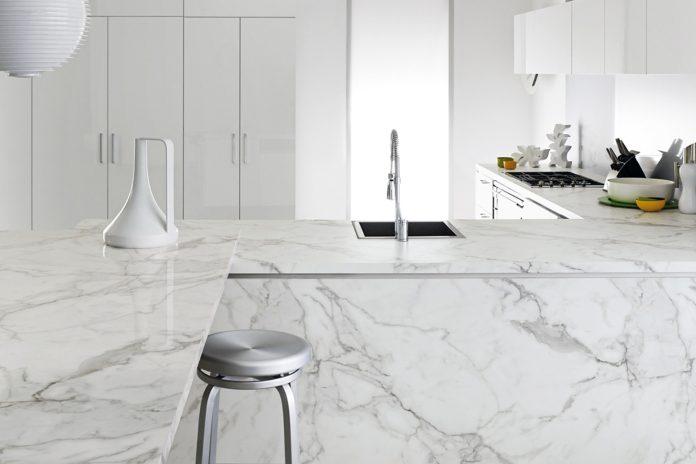Unlike natural stone, porcelain slab is durable enough to withstand high temperatures and abrasions. It’s also non-porous, making it hygienic and ideal for benchtops. It can even be used to clad walls, cabinets and furniture. Porcelain slabs come in a wide range of colours and patterns reflecting natural components, such as marble, wood grain and concrete. These can be either glazed or unglazed.
Porcelain Slabs Benchtops
Porcelain Slabs Benchtops are a fashionable and functional alternative to quartz and granite. This durable material is ideal for your kitchen because it resists heat and can withstand heavy appliances. It also has a non-porous surface that won’t stain, and it is easy to maintain. In addition, it’s resistant to ultraviolet rays and won’t discolour like natural stone. Another reason to consider porcelain slabs is that they’re extremely versatile and can be used in a variety of ways. For example, a ceramic porcelain slab can be used as a backsplash behind a stove or range hood. In addition, it can be used as a countertop or island. You can even use it as an accent wall in your kitchen.
Another benefit of porcelain slabs is that they can be manufactured with a single slab cover, which makes them easier to install. In addition, they are also a more affordable alternative to natural stone. Another advantage is that they can be customised to suit your unique style and design requirements. The colour and pattern options are endless, making them a great choice for anyone who wants to update their kitchen without breaking the bank. Moreover, they’re also very durable and can withstand the effects of abrasions, thermal stress, and scratching.
Porcelain Slabs Benchtops Sydney
Porcelain slabs are a good alternative to quartz benchtops, with the added benefit of being heat-resistant. They also resist stains and won’t fade in the sun, making them ideal for kitchens with gas cooktops. They’re available in a wide range of colours and patterns, including marble-like designs. Some even have patterns that mimic woodgrain and cement. The material is also extremely durable and scratch-resistant. It’s non-porous, so it doesn’t absorb bacteria or fungus. It’s also less likely to stain or mark, making it a great option for busy kitchens. It’s also very easy to clean, and because it’s waterproof, it won’t discolour under hot water.
This durable and beautiful material is a good choice for kitchen benchtops, splashbacks, or bathroom vanity tops. It’s available in a wide range of colours and styles, and there are several edge profiles that can be used. Some are curved for sinks, others have bevelled edges, and still others have flat or square edges. It’s a heavy material, however, so you’ll need to work with your joiner to ensure cabinetry can handle the weight. It requires a specialist fabricator to cut, so you’ll need to factor in additional costs. The price varies depending on the complexity of the design, what kind of stone you choose, and how it’s installed.
Porcelain Benchtop Cost
If you want a Porcelain Benchtop Cost that is both durable and beautiful, porcelain slabs may be the solution for you. This man-made material is similar to quartz and Corian in that it is heat-resistant and nonporous. However, it is more affordable than natural stone and has a range of color options. Unlike other materials, it is also light enough to be installed directly on top of the existing countertop without having to remove it first. This will save you time and money during your renovation project. Porcelain is made by heating powdered china clay, or kaolinite, with feldspars and quartz. The resulting material is non-porous and easy to clean, and can be molded into shapes to mimic the appearance of other materials. It’s also a very strong and durable material, and is heat-resistant and frost-tolerant.
Porcelain slabs are also resistant to stains, scratches, and chipping. Its low-maintenance nature means that it’s a perfect choice for your kitchen benchtop. You can clean it with neutral liquid soaps or detergents. However, you should avoid putting hot pots or pans on the surface to prevent cracking. You should also wipe it regularly to prevent it from becoming dull and scratchy. You should also avoid using acidic cleaners on porcelain surfaces, as they can diminish their luster.



